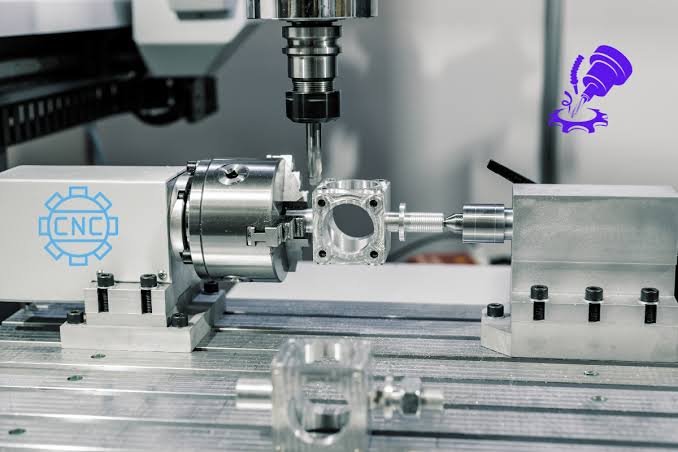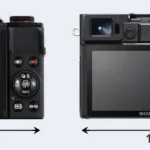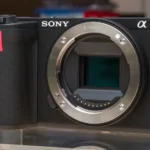The success of a project depends on selecting the best process to achieve them. This statement also applies to CNC machining services, encompassing various manufacturing techniques with unique functionalities. Therefore, manufacturers and machinists must comprehensively overview each process, their features, capabilities, and applications before selecting the best fit for their project.
This article provides a detailed overview of various precision CNC machining services and compares each with another. We also briefly discuss factors you need to consider, allowing you to decide on the best fit for your project. Read ahead!
What is CNC Machining
CNC (Computer Numerical Control) machining is a manufacturing process that utilizes computer programs to control, operate, and manipulate machine tools. This technology allows for precise, efficient, and repeatable production of complex parts and components from various materials such as metals, plastics, and wood. CNC machining operations are automated.
Therefore, the machines can operate almost independently without compromising dimensional accuracy. However, we must inform you that CNC machining services vary, with each specific process having unique capabilities and industrial applications, depending on the project’s specificity.
CNC mills, lathes, turning centers, and routers are the main types of CNC machines. Due to their ability to produce high-precision parts with tight tolerances, CNC services are a mainstay in multiple industries, including aerospace, automotive, electronics, and medical devices.
CNC Router vs CNC Mill vs CNC Turn vs CNC Lathe: Which One is a Good Fit for Your Projects?
As mentioned earlier, CNC machines differ, each offering unique applications depending on your machining project. Therefore, it is vital to understand the capabilities of each device to ensure that the best fit is selected for your design specification.
Below, we discuss the distinctions between CNC routers, mills, turns, and lathes to help you determine the best fit for your machining needs.
CNC Router vs CNC Mill
CNC routers are designed for cutting, carving, and engraving softer materials such as wood, plastic, and composites. They use a high-speed spindle to move along various axes, allowing for intricate designs and large-format work. In contrast, CNC mills are some of the most sophisticated CNC devices. They are highly versatile machines with vast capabilities suitable for machining simple to complex parts.
Mills use rotatory cutting tools to remove components from a stationary workpiece. Unlike routers, the most sophisticated milling centers have multi-axis functionalities, allowing them to cut along more than three traditional axes, up to five or even more.
Since these two processes possess unique operations, their applications differ. CNC routers, which suit softer materials, are commonly used in sign-making, woodworking, and cabinetry. Machinists use them to create detailed patterns, custom furniture, and artistic designs. On the other hand, CNC mills are used to create complex shapes, slots, holes, and contours in metal, plastic, and wooden components.
Therefore, CNC mills are a standard device in precision-based manufacturing companies, such as the aerospace and automotive industries. CNC mills also suit high-speed cutting applications, optimizing their operations.
CNC Mill vs CNC Turn
As mentioned earlier, CNC mills are one of the most sophisticated devices. However, turning centers also possess vast capabilities, though their operations differ. While CNC mills utilize rotating cutters to remove components from a block workpiece, turning operations use a single-point cutting tool to machine a rotating workpiece. This difference in operation translates to the kind of parts and components they create.
While milling services can fabricate complex designs and geometries, turning typically creates rounded structures, often cylinder-like and conical shapes. However, CNC turning centers are more sophisticated than standard lathe cutting machines. This advanced machine suits vast applications like milling centers, including boring, threading, and even milling and drilling. Therefore, they, too, can create parts with complex geometries and structures, offering similar applications to mills.
CNC Turn vs CNC Lathe
As already hinted, CNC turn and lathe are similar machines with similar applications. Lathes are the traditional device used for turning applications. Therefore, they use a single point end cutting tool to machine a rotating workpiece, creating parts with rounded shapes and structures. While CNC turning centers operate on this same principle, they are more sophisticated, offering more extensive capabilities, including boring, drilling, facing, threading, etc.
However, in addition to standard turning operations, CNC lathes can perform facing and drilling operations, focusing on high precision for symmetrical parts. Even with these applications, turning centers are more advanced, offering better precision and tight tolerance applications. With turning centers, you can perform vast machining services in a single setup, minimizing errors and overall machining times.
CNC Router vs CNC Lathe
As mentioned earlier, routers are more suited to machining softer materials. Machinists use routers to cut, carve, and engrave wood, plastic, composites, and, in some cases, softer non-ferrous metals like aluminum. However, lathes are the standard device for turning operations in most industries and machining shops.
Therefore, while CNC routers are limited to softer materials used in woodworking and sign-making, among other applications, lathes can fabricate more extensive components. Lathes are more applicable in various industries, such as creating components for automotive and aerospace.
Which CNC Machining Service Should You Select?
We have already provided enough information indicating that different CNC machining services offer specific applications. Therefore, it is critical to understand each process enough to ensure that you select the best suited for your project.
Below, we discuss some factors requiring consideration before selecting them for your part fabrication.
Material Compatibility
Different CNC machining services are better suited for specific materials. For example, CNC routers are ideal for machining softer materials like wood, plastic, and composites, while CNC mills and lathes are better for more rigid materials like metals. Therefore, a CNC router might be the best choice if your project involves intricate designs on softer materials. However, a CNC mill or lathe would be more appropriate for complex, high-precision parts made from metal.
Complexity of the Design
Design complexity also plays another significant role in determining the best CNC machining service. CNC mills, especially multi-axis milling machines, are ideal for intricate designs with complex geometries, slots, holes, and contours. On the other hand, CNC lathes and turning centers are more suited for parts with rounded, symmetrical shapes, such as cylinders and cones. Consequently, if your project involves complex, multi-faceted parts, a CNC mill would be the best choice, while simpler, cylindrical parts would benefit from CNC lathes or turning centers.
Precision and Tolerance Requirements
High-precision parts require CNC machines that can consistently achieve tight tolerances. CNC mills and turning centers are known for producing high-precision components with tight tolerances, making them ideal for industries like aerospace and medical devices. Therefore, CNC milling or turning would be essential to meet your requirements when working on complex parts with intricate detailing and complex structures.
Cost Considerations
Cost considerations are always a deciding factor in any project. CNC milling and turning services are more expensive due to the design complexity and precision standards they offer. In contrast, CNC routers are generally more cost-effective for projects involving softer materials and simpler designs. When deciding, balance the cost of the service with the precision, material compatibility, and volume requirements of your project to ensure the best value.
Conclusion
Selecting the appropriate CNC machining service is essential for ensuring a successful project. Factors and specific requirements in deciding the best-fit service for your fabrication include material type, complexity, and desired precision. Once you’ve assessed these criteria and have a comprehensive understanding of each CNC service, you can decide on the best fit for your fabrication.










